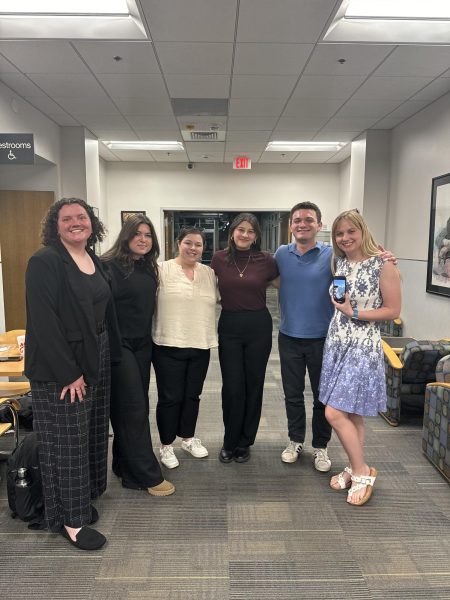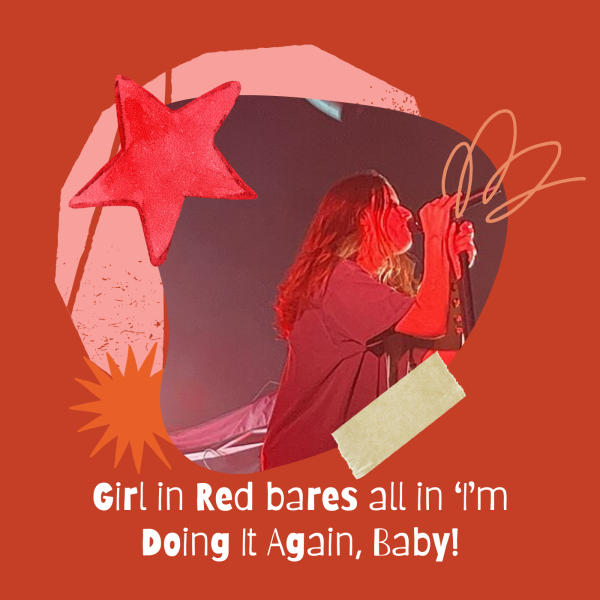Boone staple band Swift Science plays their last show this weekend at Boone Saloon in an act the founding members see as going out on top after living through five years of iterations of progressing sound.

Swift Science began in 2009 when front man and then-student JD Rust created a Facebook group titled “I play an instrument and I live in Boone” in hopes of finding new bandmates to play with while he finished school, after the other members of his previous folk-pop act graduated and moved away. From among the over 100 members who quickly joined, drummer Ben Mercer sought Rust out personally.
The two formed the basis of Swift Science with four other members assembled from the crowd – including a violinist and a female vocalist – and the group began performing songs from Rust’s own repertoire.
“It wasn’t bad. It was just slightly good songs that you could take or leave,” Rust said. “It was what you would expect from a young college kid that was playing with the first five people that he saw.”
Five years later, and the two founders are the only originals left. After cycling through members while playing “folky-poppy little love songs,” they began to realize certain pieces didn’t always fit the kinds of songs they were writing.
In late 2010, Rust wrote a song with heavy blues influence.
“We all just kind of loved it and it was very easy to get amped up,” Rust said. “I would notice people really reacted to that song when we played it.”
Soon the band was reduced to a four-piece, blues-rock setup at the suggestion of the other guitarist, with whom Mercer also began a country side-project in Swift Science’s downtime.
“I was still doing it for fun, but I wanted to push a little harder,” Mercer said.
As such, the band had to learn a new repertoire to match their new sound.
“When you decide to start playing a certain sound, you can’t just jump between genres in the show,” Rust said. “It’s all very confusing and hard to realize as a musician until you have a ‘come to Jesus’ moment.”
That moment came partially when the other guitarist left for Asheville with their bassist’s ex-girlfriend. The then three-piece band actually sounded more clear and less muddled with the new style, and the band reached their first round of success in late 2011 playing house shows around town, which were particularly popular with younger students who were unable to go to bars.
“It wasn’t that crazy, it was just fun rock and roll party music,” Rust said. “It became a thing that when we would have a show we couldn’t say we were playing or else the police would be there within 30 minutes.”
This reputation followed them through their underground popularity until the trio began to realize the slow destruction of their equipment by wild partiers edging ever closer to the stage.
“I will say it was a lot of fun, but we started thinking that we should start playing shows where we were going to get paid now,” Rust said.
So the band set about recording an album with one cheap microphone and Garageband, laying the groundwork skills and love of recording that have followed Mercer to this day, as half of the sound-mixing behind local recording label Wet Bandit Audio.
A brief three-month hiatus in Charlotte allowed the two to quickly wrap up the album while they lived in relative poverty, until job offers brought Mercer and Rust back to Boone in late 2012, having graduated in December of 2010 and 2011, respectively.
Their return was seen as a fresh start, as most of their previous fans had moved out of Boone in the meantime, allowing Swift Science to be recreated yet again, without preconceptions.
“I wasn’t concerned with pleasing anybody, just the chance to be more creative,” Mercer said. “Whatever it turned out to be it was just going to be that, and I was cool with it.”
Rust started writing songs he actually liked without trying to go for a certain sound and brought in a banjo player to round out his new ideas. Being completely separate from the college, Swift Science began to attract fans from the community.
“Early on, onstage at the bars, I realized that sometimes we would have pretty good shows, other times not really. We were basically known around town for being a local version of The Black Keys, and that bugged the shit out of us,” Rust said.
After their rebirth, they added Dries Vandenberg in early 2013 to replace their former bassist. Vandenberg was a talented local guitarist who first joined as a favor, but ended up providing the perfect pop musicality to the band’s ongoing progression.
“It was catchy but you were definitely listening to a Swift Science song,” Mercer said. “We had finally hit this point where when someone started describing our music I realized that people were saying stuff about our styles, not describing bands.”
After playing a couple of successful shows with Holy Ghost Tent Revival, the band began examining their live performance. They stopped talking between songs and telling jokes, and began stringing their songs together in a more cohesive way, that has carried through the past year or so. The banjo player moved away, but rather than replace him the group instead brought in guitarist Blake Baines a little less than a year ago, bringing the arrangement back to the original two-guitar setup, but with a more mature sound. The band could afford to be pickier to keep fans satisfied with their material. Crowds began responding more positively than ever.
“Selfishly, it was nice for me to be able to join a band that already had this following,” Baines said. “I just had to learn these songs and I was already playing in front of an enthusiastic audience.”
Although he hasn’t had the time to make this band a priority before its end, Baines said he has still learned a lot in his short time as a member. All current members are convinced this last show, their first since April, will be their best yet.
Rust, the only member now without a remaining motivation to stay in Boone, is soon moving out on his own to Carrboro, where he hopes to explore his own musical options. Mercer is staying behind to devote his time to Wet Bandit. Despite the many revamps of the band, the two have decided it is best now to quit while they’re on top.
After devoting the past year to writing new material, the band has calmed down some. Both musicians are confident in their abilities right now, and want to see where else those can take them.
“The day I decided I was not going to keep playing with this band was a weird day. Sitting here after having thought of it, it wasn’t a big magical moment for me until I realized that I know exactly what to do and say when I arrive over there. I know exactly who I want to play with and what things I would like to be doing and what creative styles I can work with,” Rust said. “I know what’s important and who to work with and not to settle for people who will waste my time.”
“We have done every single thing that you would have to do in a band, to learn all the nuances of how to do it successfully, and it has been awesome,” Mercer said. “It’s the best learning experience you could have.”.
Swift Science plays their final show Saturday at 10 p.m. at Boone Saloon. For more information find Swift Science on Facebook.
Story: Lovey Cooper, Senior A&E Reporter
Photo: Chris Deverell, Video Editor










